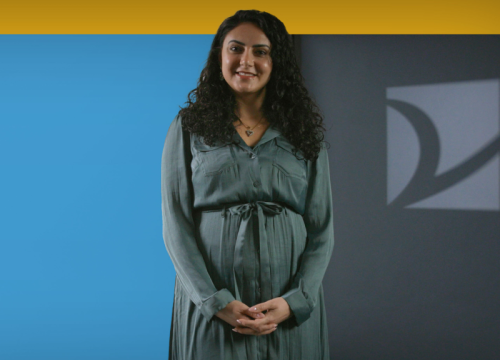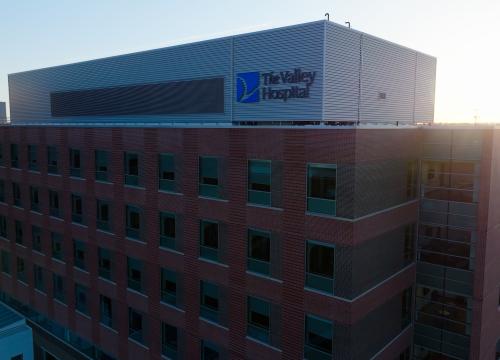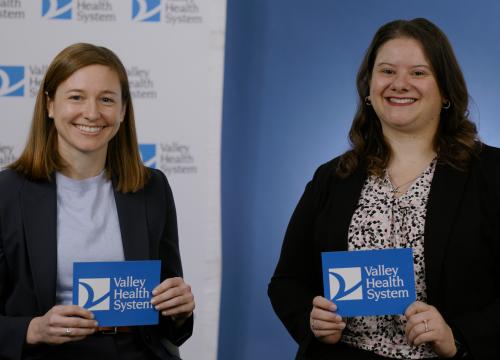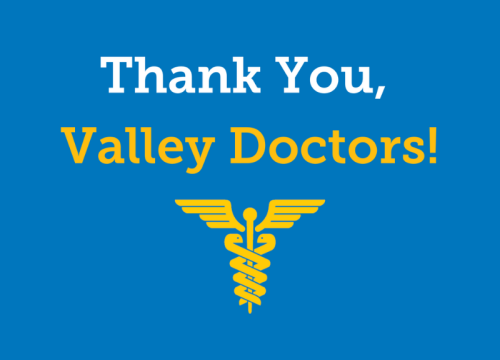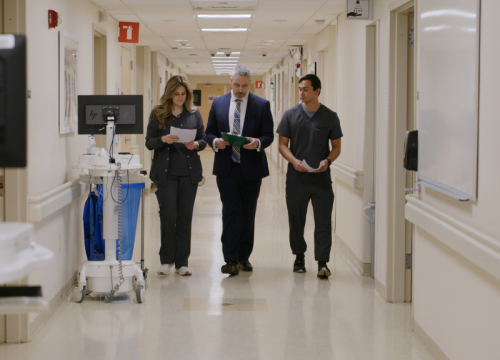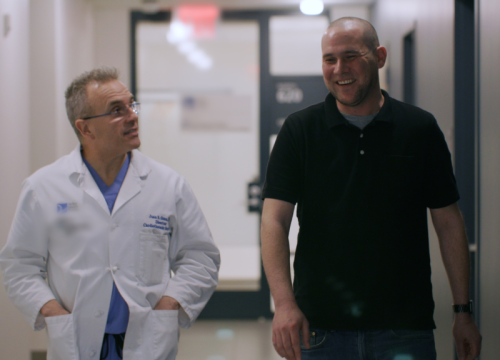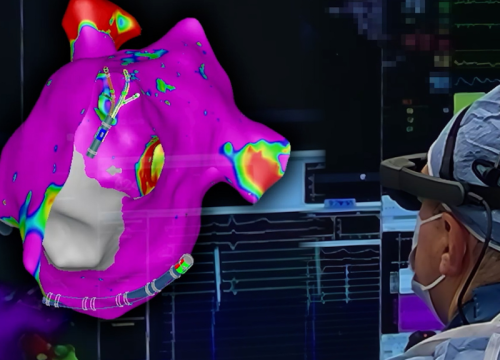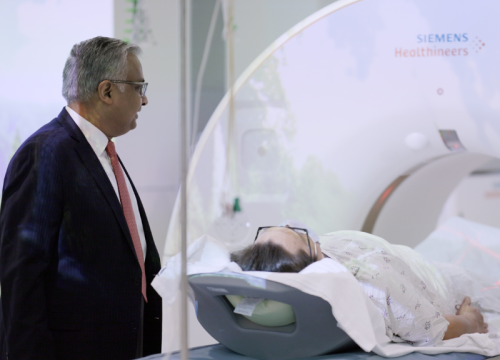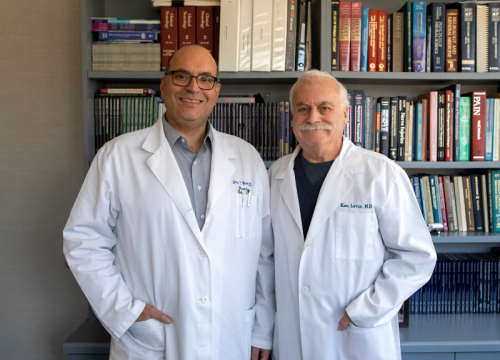Today, the latest lung cancer tests and treatments — available at Valley — are saving the lives of countless patients with lung cancer.
A Team Approach to Lung Cancer Care
Your Lung Cancer Team
Surgical Specialists
Robert Korst, MD
Mark Shapiro, MD
Medical Oncologist
Jae R. Cho, MD
Eli Kirshner, MD
Radiation Oncologist
Chad DeYoung, MD
At Valley’s Lung Cancer Center, we focus on treating your cancer in the most effective and least invasive ways.
That means detecting your lung cancer early — when treatment is most effective — through lung cancer screening. It means offering personalized, targeted therapies and minimally invasive options for diagnosis and surgery. It also means precisely targeted radiation therapy.
Through these services, our lung cancer program offers an up-to-date, comprehensive program for patients with lung cancer and those at risk for the disease.
Conditions Treated
How Innovation Leads Our Lung Cancer Program
Our multidisciplinary team is passionate about using the latest technology to improve the lives of our patients.
Robotic Surgery
The da Vinci® Surgical System allows our surgeons to perform lung cancer surgeries with the most advanced minimally invasive techniques. We perform 90 percent of our lung cancer procedures robotically. With more precision and magnification at the surgical site, even the most complex and delicate procedures can happen through tiny incisions. Robotic surgery allows our team to be more precise and gentle with tissue handling, resulting in less pain, less blood loss and reduced risk of infection for patients.
SBRT (Stereotactic Body Radiosurgery)
This latest advancement offers a groundbreaking option for patients who may not be candidates for lung cancer removal by surgery. With this state-of-the-art technology, we can directly focus radiation just at the disease spots. Valley offers SBRT using the TomoTherapy system. This form of radiation uses a CT scan before each daily radiation treatment to ensure precise targeting of the tumor.
Personalized Therapy Begins With You
When you have lung cancer, you deserve more than a one-size-fits-all solution.
At Valley’s Lung Cancer Center, we proudly offer cutting-edge treatments that best address your unique diagnosis and needs.
Molecular Profiling
Cancer happens when DNA mutates, and molecular profiling can target these specific molecules in the mutation. Valley’s Lung Cancer Program offers this revolutionary molecular profiling that has changed the standard chemotherapy.
We routinely use mutational analysis on all lung cancers surgically removed or biopsied at Valley.
Molecular profiling helps provide that blueprint for effective individualized treatment. We test for multiple mutations, including EGFR (epidermal growth factor receptor) mutations, to determine the effectiveness of EGFR inhibitors. We also perform mutational tests to evaluate aggressiveness (kras mutational analysis) and sensitivity to chemotherapy (ERCC1).
Through this unique technology, our team can better understand the underlying characteristics of your cancer cells. This process also determines whether a specific patient’s tumor will respond to a "targeted" medication. With all this robust data, our team can identify the most effective treatments and drugs that suit your needs.
Immunotherapy
Valley has been at the forefront of using immunotherapy for cancer treatment since 2014.
As a form of biological therapy, immunotherapy uses the body's natural defenses to fight cancer. Specially designed drugs allow our immune system's white blood cells (T cells) to recognize and kill cancer cells.
We offer immunotherapy for all FDA-approved uses in lung cancer, including first-line treatment for non-small cell lung cancer (NSCLC). We also give our patients access to immunotherapy clinical trials for the latest treatments.
Our Navigator Program Supports Your Care
As we help you treat your lung cancer, it’s more than tests and margins. We know you need personalized support along the way, and that’s where our navigator program comes in.
Our navigators are with you every step of this process, starting with your first phone call. At no cost to you, our navigators help you with many things, including:
- Coordinate testing, medical appointments and other services throughout your lung cancer treatment.
- Obtain patient records from other medical facilities.
- Educate you about your lung cancer process, treatment options and side effects.
- Act as a liaison between you and your physician(s), helping communicate with the multidisciplinary team on your behalf.
Our patients tell us how much this relationship matters in their care. It is something our navigators deeply value, too. We are here when you need us.
Referring Your Patients for Lung Cancer Services
At Valley’s Lung Cancer Center, we work alongside referring providers to provide the best possible care to your patients. Most importantly, we help you maintain that critical relationship with your patient before, during and after their treatment with us.
With an exceptional team of board-certified physicians and expert specialists, we have everything your patients need for personalized lung cancer care. This comprehensive treatment includes lung cancer screening, minimally invasive surgery, innovative technology treatments and follow-up support.
When we receive a referral, our staff will contact your patient directly to begin care with us. Once treatment begins, we will work closely with you to ensure you receive timely treatment updates. After the course of care finishes here, your patients will return to you for continued treatment.
With compassionate and comprehensive care as our shared priority, we can help your patients get the best treatment for their lung cancer.
Why Choose Valley for Lung Cancer Services?
- Surgical expertise: Our surgeons are board-certified thoracic surgeons whose primary focus is lung cancer surgery, rather than general surgeons who only occasionally perform lung surgery. Procedures include wedge resection, lobectomy, segmentectomy and pneumonectomy.
- Dedicated Pulmonary Nodule Center that provides evaluation and management for patients who have lung nodules of uncertain significance found on an X-ray or CT scan.
- Minimally invasive options for lung cancer diagnosis and lung cancer staging, including endobronchial ultrasound (EBUS) and transbronchial biopsy. Transbronchial biopsy uses a GPS-like navigation system to reach areas of the chest that could previously only be reached through open surgery.
- Clinical trials and research: We offer lung cancer clinical trials to provide our patients with the most leading-edge treatments. We also have dedicated lung cancer research focusing on developing future options for patients with cancer.






